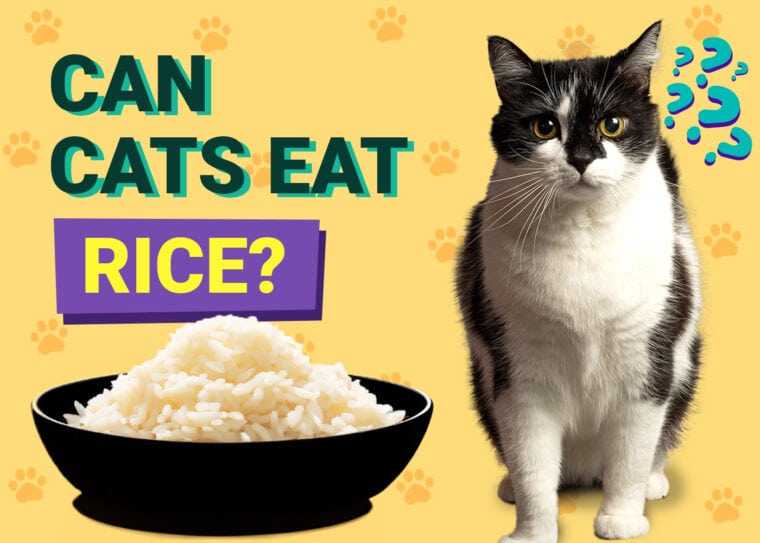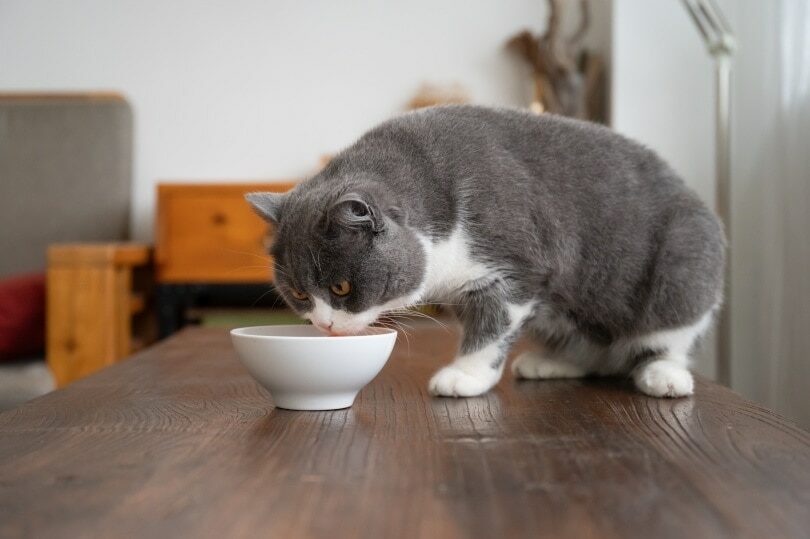
Cats are carnivores and so they require a well-balanced, meat-based diet containing high amounts of protein, some fat and small amounts of carbohydrates. High quality, complete commercial cat foods will contain all the necessary nutrients they need to be fit and healthy.
Some human foods are safe for cats in addition to a well balanced diet, although their stomach is quite sensitive to seasoned foods and food with oil or grease. One such food that can, on certain occasions, be safe for your cats is rice. Rice is an excellent part of the human diet, and is sometimes recommended for cats with gastrointestinal issues such as diarrhea. It is essential to note that not all forms of rice are safe for cats, and rice should only be given occasionally.
Read the article below to learn which forms of rice are safe and which are harmful to your cat.
What Should Cats Eat?
Understanding the importance of a proper diet for your cat is crucial if you want to keep your cat healthy and strong. The balanced diet you choose needs to have enough nutrients to provide them with enough energy throughout the day and help them grow and develop properly. Since cats are carnivores, they rely on nutrients that can only be found in animal products,and so providing them with animal protein is crucial. The particular food your cat needs will depend on many things, such as its age, size, and weight.

Should You Feed Your Cat Rice?
Plain, cooked rice is considered safe for cats in small amounts, although you need to be careful about other forms of rice. Rice cakes, rice pudding, or cereals like rice Krispies can contain seasoning, oils, sugars, dairy, and additives, which can be harmful to your cat. Rice may also be unsuitable for cats with sensitive digestive systems and those with diabetes or other medical conditions.
Do Cats Like Eating Rice?
Pets like cats and dogs often enjoy eating human food. Rice is one of the foods cats can find pretty tasty. As with most human foods, if you give your cat rice, it is essential to leave out oils and seasoning. Most cats enjoy eating rice, and your vet may even instruct you and encourage a diet containing rice if your cat has an upset stomach.

Benefits of Rice for Cats
Sometimes rice is recommended as part of a bland diet to help your cat recover from diarrhea. This is usually recommended because rice is highly digestible. However, it should only be fed in small amounts as it won’t provide your cat with complete and balanced nutrition. If your cat is having digestive issues it’s best to contact your veterinarian who may recommend transitioning to a well-balanced, highly digestible cat food that is good for sensitive tummies.
Downsides of Rice for Cats
Other than your cat occasionally enjoying the taste of rice, it doesn’t have many nutritional benefits. Rice is rich in carbohydrates, which can lead to weight gain and even obesity if fed too much or too frequently. Uncooked rice can harm your cat because it is hard to digest and can even cause vomiting, bloating, or diarrhea.

How Much Rice Is Safe for a Cat to Eat?
Rice may be an ingredient in complete commercial cat foods. However, feeding too much rice in addition to their complete food can fill them up and cause cats to miss vital nutrients from their recommended food. Before feeding your cat rice, you need to take into account its weight and size. You can consult your veterinarian about the ideal portion and whether it is necessary to make any changes to your cat’s regular diet.
The 6 Types of Rice & Their Safety for Your Cat

Tips for a Healthy Diet
Knowing exactly what your feline companion can and cannot eat will help you become the best pet parent. Recognizing that not all cat bowls are equal is also key! The Hepper NomNom Cat Bowl sets itself apart from traditional options by catering to the specific needs of cats. The innovative design offers whisker relief via shallow dishes and promotes digestion with a slight bowl elevation. Find out if the Hepper NomNom is right for your cat by clicking here.
At Pet Keen, we’ve admired Hepper for many years and decided to take a controlling ownership interest so that we could benefit from the outstanding designs of this cool cat company!
 Final Thoughts
Final Thoughts
If you discover that your cat enjoys eating rice occasionally and now, you’re wondering whether it is safe for it, hopefully, this article has answered all your questions. Rice is safe for your cats if cooked properly, unseasoned, and offered in small quantities. It is crucial to be moderate in feeding your cat rice, as too much can cause gastrointestinal issues, weight gain and mean they don’t get the required nutrients that they need from their recommended balanced food.
Featured Image Credit: Amarita, Shutterstock








